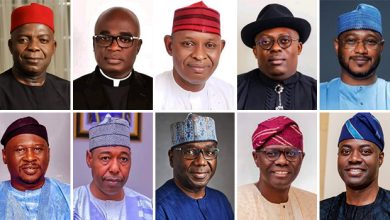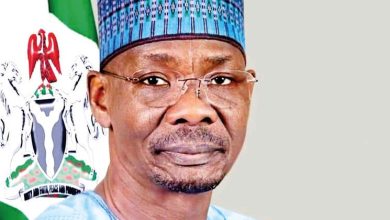
Nigeria To Save N2.8trn From Proposed National Shipping Line
Nigeria is set to recoup about N2.76 trillion ($9billion) annually lost to foreign countries on freight rate for wet and dry cargoes when the proposed National Shipping Line by the federal government come on stream, LEADERSHIP has learned.
Since the collapse of the Nigerian National Shipping Line (NNSL), Nigeria has not been able to participate in international carriage of cargoes, with all Nigerian borne cargoes lifted by foreigners.
Also, Nigeria is the only country of all the Organisation of Petroleum Exporting Countries (OPEC) nations such as Iran, Indonesia, Algeria, Kuwait, Angola, Venezuela, UAE and Libya whose indigenous shipowners do not lift its oil because of lack of a national fleet.
Stakeholders said that resuscitating the national fleet would help the country mitigate the loss and put it on the map of maritime nations and make it a force to reckon with globally.
Corroborating the assertion, the executive secretary of the Nigerian Shippers’ Council (NSC), Mr. Hassan Bello said the country spent about $9 billion as freight on wet and dry cargo last year because no Nigerian-flagged vessel lifts any of its cargoes.
Bello, who is also the chairman, National fleet Implementation Committee while speaking with LEADERSHIP yesterday disclosed that because of the absence of national fleet and Nigerian-flagged vessels on the international waters, the maritime industry only contributes 0.01 percent to the Gross Domestic Product (GDP), despite huge opportunities inherent in the industry.
He lamented that the capital flight has impacted negatively on maritime-related other sectors of the economy such as banking, insurance, and other auxiliary services with billions of dollars lost to foreigners.
He said, “Imagine if we have a national fleet, this amount would have been saved, which will also translate to more sea time for our seafarers. No single indigenous ship carries Nigeria’s oil in international trade. Nigeria doesn’t have a single ship. So, all that we have been doing is a slave for foreign ships.
“Imagine what these earnings will do if there are Nigerian ships and when we say Nigerian ships, we are talking about Nigerian banks and insurance companies our Nigerian seafarers, surveyors, seamen and all the length and breadth of associated industry such as ship repair, shipbuilding yards, etc benefitting, ” he explained.
Meanwhile, the Nigerian Shippers’ Council boss said the federal government is set to operate a national fleet that would be private sector is driven and sustainable. He stated further that the committee which he heads was on board to provide incentives and clean up the impediments that would affect smooth and efficient takeoff of the national fleet.
He said: “The national fleet is a three-year programme and we can’t have a fleet that is not enduring or sustainable. There are policies, laws, taxes and lot of impediments but we are cleaning the impediments” he said , adding that that his committee has engaged the Nigerian Maritime Administration and Safety Agency (NIMASA) on need to change Nigerian trade terms from Free on Board (FOB) to Cost Insurance and Freight (CIF).
“FOB and CIF are one of the impediments we are clearing and NIMASA is on board. The national fleet implementation committee is working with the economic management team led by the Vice President, Prof. Yemi Osinbajo and the Nigeria Investment Promotion Council (NIPC). Many meetings have been held with key industry stakeholders especially Federal Inland Revenue Service (FIRS) so that there will be some incentives.
“We have to incentivise the private sector. Don’t forget the government won’t spend a kobo on the project. It is a private sector-led the national fleet and we are cleaning up and bringing in investors to look at everything and see how we can invest in shipping.
“If we invest and have a fleet, NIMASA will give them a status of the national carrier and if this is done, all government cargoes that is, federal, state and local governments will have first priority above others, and when they don’t have place onboard is when other carriers will be given a second thought. You can imagine all the contracts on railways, building, power projects, and others will be meant exclusively for the national carrier. Long contract, a lot of cargoes to lift and if that is done that will translate to the Economy. Now shipping is contributing 0.percent to the GDP of Nigeria and some said Nollywood contributes more, we are not proud of that, every country should be proud to have their ships where their nationals operate and which carries the country flags.’’
Also speaking, the director-general of NIMASA, Dr. Dakuku Peterside had said that of the 1.92 million barrels of crude oil per day sold by the government, Nigeria has an insignificant share in the carriage. Dakuku stating that with the right policies in place, Nigeria can build its own capacity and one of this is the change of Terms of Trade to Nigeria’s benefit.



